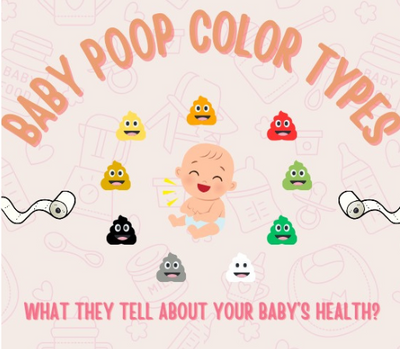The Ultimate Guide to Helping Your Baby Sleep through the Night: Tips, Tricks, and Expert Advice

Are you a sleep-deprived parent desperately seeking a solution to your baby's restless nights? Look no further! Welcome to The Ultimate Guide to Helping Your Baby Sleep through the Night. In this comprehensive guide, we've gathered the most effective tips, tricks, and expert advice to help you and your little one enjoy peaceful nights and well-rested mornings. Say goodbye to endless rocking, bouncing, and shushing, and hello to a well-rested household. From establishing a soothing bedtime routine to creating a sleep-friendly environment, we've got you covered. Our team of sleep experts has spent countless hours researching and testing various methods to ensure that you have access to the most up-to-date and scientifically-backed strategies. So, prepare to embark on a journey towards better sleep for both you and your baby. Get ready to reclaim those precious hours of uninterrupted rest and wake up feeling rejuvenated and ready to tackle the day. Let's dive in and discover the secrets to helping your baby sleep through the night.
The Importance of Baby Sleep
Babies require a significant amount of sleep for their growth, development, and overall well-being. Sleep plays a crucial role in cognitive function, emotional regulation, and physical health. It is during sleep that their bodies and brains recharge, allowing them to thrive during their waking hours. Adequate sleep is essential for their immune system, memory consolidation, and learning abilities. Lack of sleep can lead to irritability, difficulty concentrating, and even developmental delays.
Understanding the importance of baby sleep sets the foundation for implementing effective strategies to help your little one sleep through the night. By prioritizing sleep, you are investing in their overall health and setting them up for success as they grow.
Understanding Baby Sleep Patterns
Before diving into specific tips and tricks, it's important to understand the sleep patterns of babies. Unlike adults, babies have shorter sleep cycles, typically lasting around 45 minutes to an hour. These sleep cycles consist of both rapid eye movement (REM) sleep and non-rapid eye movement (NREM) sleep.
REM sleep is when most of their dreaming occurs, while NREM sleep is a deeper and more restorative stage of sleep.
Babies also have more irregular sleep patterns compared to adults. They may sleep for shorter durations during the day and have longer stretches of sleep at night as they grow. It's important to be aware of these patterns and adjust your expectations accordingly. Understanding your baby's sleep patterns will help you establish a routine and implement strategies that work best for them.
Common Sleep Challenges for Babies
Many parents experience common sleep challenges with their babies. It's crucial to bear in mind that every baby is distinct, and what proves effective for one may not necessarily be effective for another. However, there are some common challenges that parents face when it comes to their baby's sleep. Let's explore a few of these challenges and discuss strategies to overcome them.
One common challenge is difficulty falling asleep. Some babies may struggle to settle down and fall asleep on their own. This can be caused by a variety of factors, including overstimulation, hunger, discomfort, or simply a lack of established sleep routines. By implementing soothing techniques and establishing a consistent bedtime routine, you can help your baby relax and fall asleep more easily.
Another challenge is frequent night awakenings. It's normal for babies to wake up during the night, especially during their first few months. However, if your baby is waking up frequently and having trouble going back to sleep, it can be exhausting for both you and your little one. By creating a sleep-friendly environment, ensuring their comfort, and gradually teaching them self-soothing techniques, you can reduce the number of night awakenings and help them sleep longer stretches.
Creating a Sleep Routine for Your Baby
Establishing a consistent sleep routine is key to helping your baby sleep through the night. A sleep routine signals to your baby that it's time to wind down and prepare for sleep. Consistency is crucial here, as it helps regulate their internal body clock and establishes healthy sleep habits. Here are some suggestions for establishing a sleep routine for your baby:
1. Set a consistent bedtime: Choose a specific time for your baby's bedtime and stick to it as closely as possible. This helps regulate their sleep-wake cycle and signals that it's time to sleep.
2. Create a calming bedtime ritual: Incorporate activities that help your baby relax and wind down. This can involve giving your baby a warm bath, providing a gentle massage, reading a bedtime story, or singing a soothing lullaby.
3. Dim the lights: Lower the lights in your baby's room as bedtime approaches. This signals to their brain that it's time to start producing melatonin, the hormone that promotes sleep.
4. Limit stimulating activities: Avoid stimulating activities, such as screen time or rough play, close to bedtime. These can interfere with your baby's ability to calm down and fall asleep.
5. Provide comfort: Make sure your baby feels safe and comfortable in their sleep environment. Use a cozy sleep sack or swaddle, provide a pacifier if they use one, and ensure the room temperature is suitable for sleep.
By consistently following a sleep routine, you'll help your baby associate these activities with sleep, making it easier for them to settle down and sleep through the night.
Tips for Soothing Your Baby to Sleep
Soothing your baby to sleep is an essential part of helping them sleep through the night. By providing comfort and creating a calm environment, you'll help your baby relax and drift off to sleep more easily. Here are some tips for soothing your baby to sleep:
1. Gentle rocking or swaying: Many babies find gentle rocking or swaying motions soothing. You can try rocking them in your arms, using a rocking chair, or using a baby swing or bouncer.
2. White noise: White noise mimics the sounds your baby heard in the womb and can help drown out other noises that may disturb their sleep. You can use a white noise machine, a fan, or even a smartphone app that offers white noise options.
3. Soft music or lullabies: Soft, calming music or lullabies can help relax your baby and create a soothing atmosphere. You can choose from a variety of options, including instrumental music or specially designed baby sleep music.
4. Comforting touch: Gentle touches and caresses can help soothe your baby. You can try gently stroking their back, patting their bottom, or even holding their hand.
5. Bedtime feeding: If your baby is hungry, a bedtime feeding can help satisfy their hunger and make them more comfortable for sleep. Make sure to burp them properly before laying them down.
Explore various soothing techniques to discover what works best for your baby. Every baby is unique, so it may take some trial and error to discover the most effective methods for your little one.
Sleep Environment for Babies
Creating a sleep-friendly environment is essential for your baby to sleep through the night. A conducive sleep environment helps your baby feel safe, comfortable, and relaxed. Here are some factors to consider when creating a sleep environment for your baby:
1. Temperature: Ensure that the room temperature is neither too hot nor too cold. The ideal temperature for a baby's room is between 68-72 degrees Fahrenheit (20-22 degrees Celsius).
2. Lighting: Keep the room as dark as possible during sleep times. Use blackout curtains or blinds to block out any external light sources that may disrupt your baby's sleep.
3. Noise level: Minimize noises that may disturb your baby's sleep. Consider using a white noise machine or a fan to create a consistent background noise that can mask other sounds.
4. Comfortable crib or bassinet: Ensure that your baby's sleep surface is safe and comfortable. Use a firm mattress and avoid placing any soft objects or loose bedding in the crib.
5. Sleep clothing: Dress your baby in comfortable, breathable sleepwear suitable for the room temperature. Avoid overdressing or using heavy blankets, as this can increase the risk of overheating.
By creating a sleep environment that promotes comfort and relaxation, you'll help your baby feel secure and more likely to sleep through the night.
Sleep Training Methods for Babies
Sleep training is the process of teaching your baby to fall asleep and stay asleep independently. It involves gradually reducing or eliminating sleep associations that require your presence, such as rocking or feeding to sleep. Sleep training is a personal choice, and it's important to choose a method that aligns with your parenting style and your baby's temperament.
1. The Ferber Method: Also known as progressive waiting, this method involves gradually increasing the amount of time you wait before responding to your baby's cries during bedtime. The goal is to teach your baby self-soothing skills and the ability to fall asleep independently.
2. The Weissbluth Method: This method focuses on establishing a consistent sleep schedule and routine to help regulate your baby's internal body clock. It emphasizes the importance of naps and early bedtimes to prevent overtiredness, which can interfere with sleep.
3. The Chair Method: With this method, you sit in a chair next to your baby's crib as they fall asleep. Gradually, you can gradually move the chair away from the crib until your baby is able to fall asleep without your presence.
4. The Pick-Up-Put-Down Method: This method involves picking your baby up when they cry and putting them back down when they are calm but still awake. The goal is to teach your baby to fall asleep on their own without requiring your assistance.
It's important to note that sleep training takes time, patience, and consistency. It's normal for your baby to protest or cry during the initial stages of sleep training. However, with consistent implementation, most babies learn to self-soothe and sleep through the night more easily.
Expert Advice on Helping Your Baby Sleep through the Night
Seeking expert advice can provide valuable insights and guidance when it comes to helping your baby sleep through the night. Sleep experts have extensive knowledge and experience in this field and can offer personalized recommendations based on your baby's unique needs. Here are some expert tips to consider:
1. Understand your baby's sleep cues: Pay attention to your baby's sleep cues, such as eye rubbing, yawning, or becoming fussy. Responding to these cues by initiating their sleep routine can help prevent overtiredness and facilitate easier sleep.
2. Be consistent: Consistency is key when it comes to helping your baby sleep through the night. Stick to established routines, sleep schedules, and soothing techniques to create a predictable environment for your baby.
3. Implement age-appropriate sleep guidelines: Babies' sleep needs change as they grow. Stay updated with age-appropriate sleep guidelines recommended by sleep experts to ensure that your baby is getting the right amount of sleep for their developmental stage.
4. Seek professional help if needed: If you've tried various strategies and your baby is still struggling with sleep, consider consulting a pediatric sleep specialist. They can provide a tailored plan based on your baby's unique sleep challenges.
Keep in mind that each baby is unique, and what may be effective for one may not be the same for another. Trust your instincts as a parent and be patient as you navigate the journey of helping your baby sleep through the night.
Common Sleep Mistakes to Avoid
When it comes to helping your baby sleep through the night, it's important to be aware of common sleep mistakes that may hinder their progress. Avoiding these mistakes can help you establish healthy sleep habits and promote better sleep for your baby.
1. Skipping naps: Naps are essential for your baby's overall sleep quality. Skipping naps can lead to overtiredness, making it more difficult for your baby to fall asleep and stay asleep at night. Stick to a consistent nap schedule that aligns with your baby's age and sleep needs.
2. Overstimulation before bedtime: Engaging in stimulating activities, such as playing with bright toys or watching TV, close to bedtime can make it harder for your baby to wind down and fall asleep. Create a calm and relaxed environment before bedtime to help them transition into sleep more easily.
3. Inconsistency in sleep routines: Inconsistency in sleep routines can confuse your baby and make it harder for them to understand when it's time to sleep. Establish a consistent bedtime routine and stick to it as closely as possible, even during weekends or vacations.
4. Relying on sleep aids: While some sleep aids, such as pacifiers or sleep sacks, can be helpful, relying too heavily on them can create sleep associations that may be difficult to break later on. Use sleep aids in moderation and gradually transition your baby to self-soothing techniques.
5. Ignoring your baby's sleep cues: Ignoring your baby's sleep cues or trying to keep them awake for longer periods can lead to overtiredness and make it harder for them to fall asleep. Respond to their cues and initiate their sleep routine at the first signs of tiredness.
By avoiding these common sleep mistakes, you'll create a more conducive sleep environment and set your baby up for sleep success.
Helping your baby sleep through the night is a journey that requires patience, consistency, and understanding. By implementing the tips, tricks, and expert advice outlined in this ultimate guide, you'll be well-equipped to create a sleep-friendly environment, establish a soothing bedtime routine, and navigate common sleep challenges. Remember, every baby is unique, and it may take some time to find the strategies that work best for your little one. Be patient, trust your instincts, and seek professional help if needed. Soon enough, you and your baby will enjoy peaceful nights and well-rested mornings, creating a harmonious and rejuvenating environment for the entire household. So, bid farewell to nights without sleep and welcome a well-rested family.














